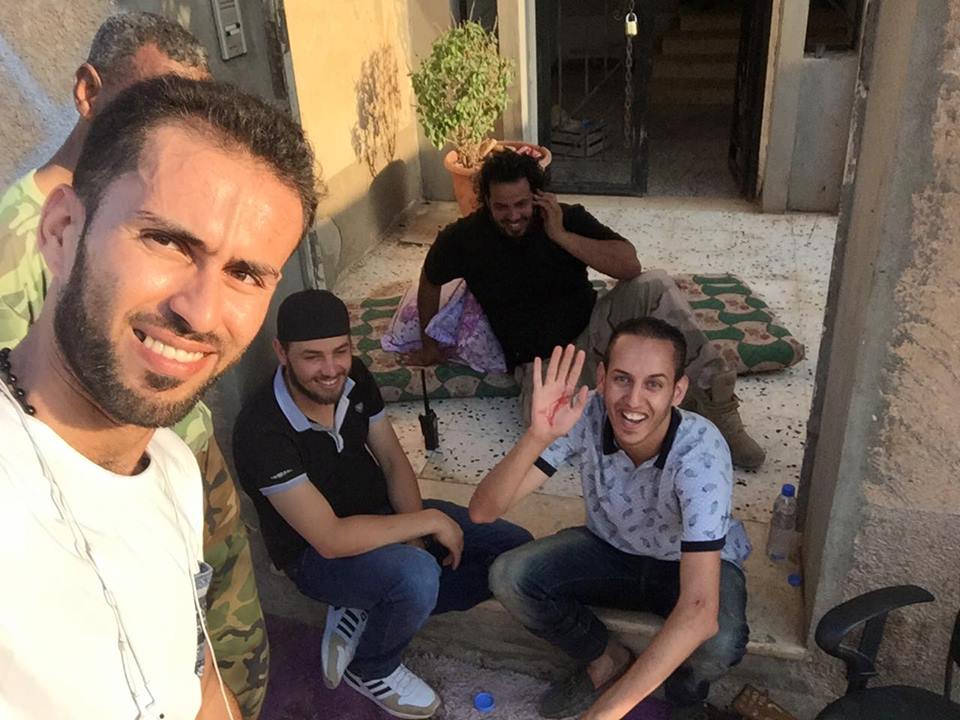By Libya Herald reporter
Tunis, 3 August 2015:
US Secretary of State John Kerry sought to blow new life into Libya’s peace process . . .[restrict]on Sunday, by throwing support behind the UN’s plan for a power sharing government.
Only one of Libya’s two administrations – the internationally recognised one – has agreed the UN plan but Kerry said that must change.
“We cannot allow one or two or three different spoiler groups who have not achieved all of their goals they had hoped to achieve though the conflict to destroy the entire process,” Kerry said in Cairo, apparently referring to the Tripoli-based continuing General National Congress (GNC).
Kerry, in Egypt for talks with Foreign Minister Sameh Shukri, added: “We agree that we are going to review a couple of possibilities and options over the course of the next days of how we might get greater support to the UN initiative right now.”
The comments and the implied commitment will be music to the ears of UN Special Mission to Libya (UNSMIL) Envoy Bernadino Leon, who has yet to find a peace formula both the GNC and House of Representatives (HoR) can live with.
Libya has been at war since July last year, when the Libya Dawn militia coalition rebelled against the newly elected HoR and seized Tripoli in six weeks of bloody fighting.
Since then the country has been divided, with elements of the former GNC aligned with Dawn installing themselves in the capital, and the HoR fleeing to the eastern city of Tobruk.
Throughout this war Leon has held talks in Switzerland, Algeria, Belgium and Morocco as well as Libya itself seeking compromise. Successive drafts of his plan for a Government of National Accord have oscillated, some favouring the GNC and others, including the current draft, favouring the HoR.
The current draft recognises the HoR as the key legislative body, giving a proposed State Council, to be dominated by the GNC, only advisory powers. Unsurprisingly the plan is favoured by the HoR but not by the GNC, although its outline was signed by Mohamed Sawan, head of the Muslim Brotherhood’s political arm, the Justice and Construction Party, which makes up the bulk of the GNC.
Leon met on Friday with GNC leaders in Algiers led by its speaker Nouri Abu Sahmain trying to win their support for his plan, but left without their agreement. Nevertheless he said he is hoping for a new round of Skhirat talks involving teams from both the HoR and GNC this week as well as the other delegates at date yet to be agreed.
Abu Sahmain will draw encouragement from being described in the UNSMIL communiqué of the meeting as the “president of the GNC”, because earlier in the peace process, Leon preferred to describe him only as the former president, with the GNC formally disbanded with the election of its replacement, the HoR.
The other hurdle Leon must clear is that while HoR delegates, and members of many other factions, agreed to his draft plan in outline in July, the agreement came at the price of leaving key aspects of the power-sharing plan undecided.
Leon’s plan ignores also the security plan, and who would command Libya’s united army. Both need to be agreed before the plan will go forward, and a potential deal-breaking element is Libya Dawn. If its militias are banned and ordered to disband, the GNC is likely to say no. If they are not, opposition is certain from the HoR.
Leon’s biggest problem is the lack of international leverage to compel both sides to make peace. The EU last month mooted the idea of sanctions, including an asset freeze and travel ban on five individuals – three from Dawn and two from the government forces – as a means of pressuring an agreement. But a ban failed to win universal support at the United Nations the month before.
On the ground, fighting continues in eastern Libya, between army units and Islamist militias, although western Libya has seen a series of locally-agreed ceasefires damp down hostilities. With neither set of armies exhausted, prospects for Leon’s plan succeeding may depend on what kind of leverage Kerry brings to the table. [/restrict]







